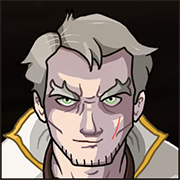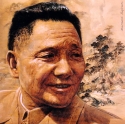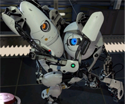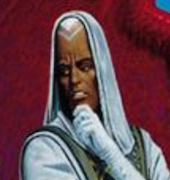|
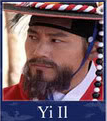 quote:Speech quote:Poem
|
|
|
|
 Prince Gwanghae, General of Hamgyong To the effeminate vegetarian tourists: please be sure to line your troops up neatly before Joseun wipes them out, so that our peasants may quickly distribute the corpses to the fields for fertilisation. OOC: working on a map template for Arujei, will add the Japanese armies when I have the mon Preview: 
|
|
|
|
Kim Cheong-seon See what these imperialistic aggressors do to the rightful leaders of a peaceful people? They have no respect for Family, for Duty, for Ordered Society! They are the reason I left Japan to join the Joseon family: familial ties should be greater than all. The Righteous Armies of Corea know this! They shall add to the numbers of our armies and we shall sweep the invaders back into the sea. And our peasants will continue their Heaven-sent duties to send the soldiers food and aid and deny it to their oppressors. The Japanese shall find Corea no easy place to march their banners under!
|
|
|
|
|
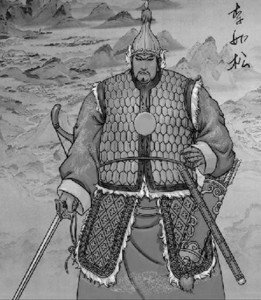 總兵李如松 - General Li Rusong A letter to the Imperial Court posted:
OOC: Also I made a new map, white circles are Korean cities, red are Japanese, if a circle is surrounded by another color, it means they're under siege. I'm going to work in armies after I can talk to Arujei... 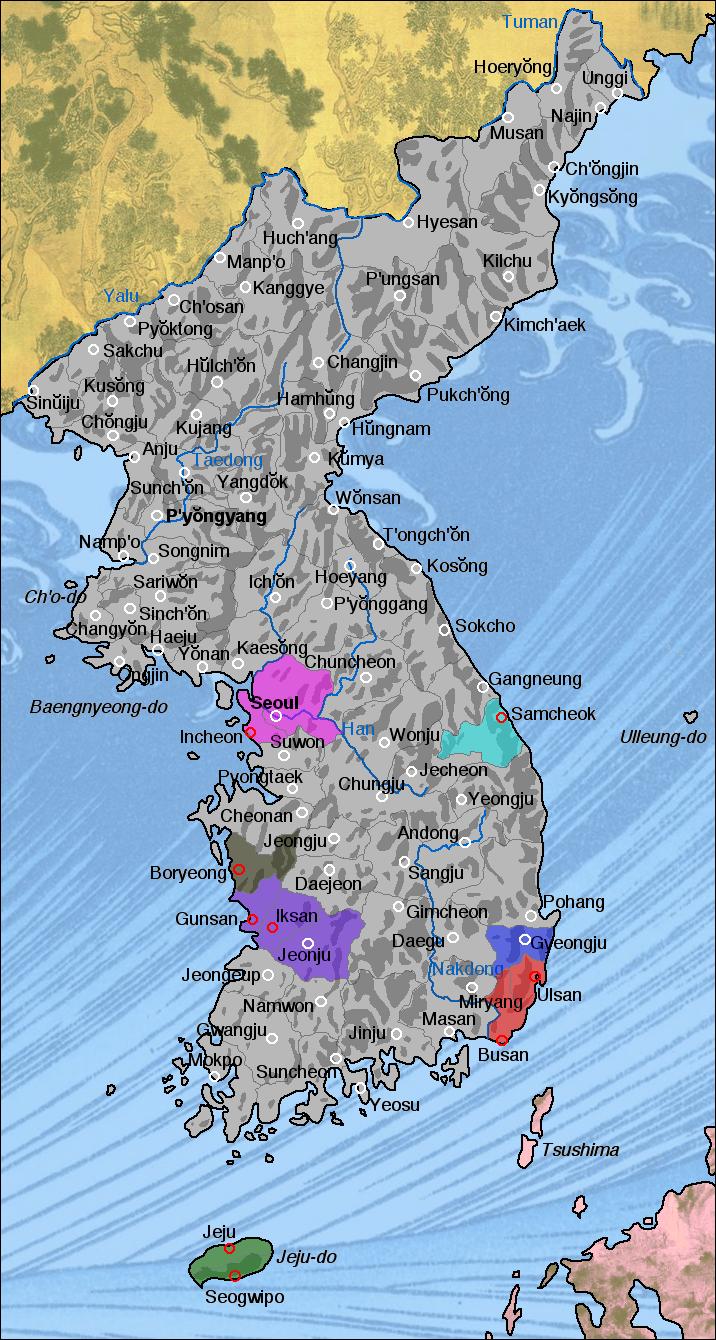
|
|
|
|
Aaaaah those maps are awesome, guys. I'll definitely try to incorporate some of that. Just a few GM notes after the first turn: 1) I got a remarkably large amount of the orders, which pleases me greatly. But because of the holidays, I'm sure people will need more time to get turn 2 in, so the TENTATIVE deadline for Turn 2 is  12/24 at 6 PM MST (GMT-7) 12/24 at 6 PM MST (GMT-7) If I have the vast majority of turns by then, I'll try to process it as soon as possible, but the sooner you get the turns to me, the better. 2) Some fluff is ok! Just make sure you bold the main portion of the action so I know what the main thrust is. Fluff helps me characterize your people better! 3) If you're plan requires several months worth of actions before it bears fruit, please give me a warning and explain what you have in mind, so I know what it's all building up toward. If I'm totally confused about what an action is supposed to do, chances are it either might not do anything, or even fail. 4) Some information about NPC forces -- you *can* order them around, but in the absence of orders I will try to GMPC them as best I can consistent with their characters. Absent other orders, Righteous Armies will most likely try to attack the nearest Japanese army or Japanese-held town. Keep up the good work, folks!
|
|
|
|
 quote:Song Men of Seoul
|
|
|
|
 I would like to join as Dirck "China" Gerritszoon Pomp ehoovestol@gmail.com
|
|
|
|
 422x342 Kuki Yoshitaka My fleet has seen great success lately; we have defeated the Koreans on the high seas and safely escorted our armies in an unprecedented attack on enemy shores. Our sailors and our warriors have proven extremely capable and intelligent and I earnestly believe that the Japanese are massively superior to the Korean Navy when it comes to fighting on the sea, when it comes to navigating the ocean, and when it comes to naval strategy. Currently, the Koreans may seem to have better ships, but that will not be the case in the near future. I will build ships stronger than any man could possibly imagine. Japan will rule the waves.
|
|
|
|
Hey there folks. While I've gotten a really good number of turns in so far, and if you complete a turn, please email it to me when you can, but I'm going to have to postpone the turn deadline until after Christmas. Merry Christmas and Happy Holidays, players!
|
|
|
|
A spear in the chest! Your gift on this holiday Die, nihon scum, die
|
|
|
|
Christians sell evil They brought firearms far east A bad present, yes? Ancestors shall know What true Confucians fight with Can they say the same?
|
|
|
|
|
 Don Gómez Pérez Dasmariñas, Governor General of the Spanish East Indies On the Corean-Japanese hostilities posted:The rumors that have reached my ears of Japanese brutality against civilian populations are abhorrent to the Spanish Crown and to God Almighty. To learn for myself if the reports are true, neutral Spanish observers will be dispatched to Corea to gauge the veracity of the rumors. I pray they turn out to be false. My Jesuit friend, I encourage you to contact me at your leisure.
|
|
|
|
Alright, I hope everyone had a great Christmas! I've gotten most of the turns, but there are still a few stragglers. I will be emailing you if I haven't gotten a turn from you yet, and placing the deadline at tomorrow 12/27 at 6 PM MST (GMT-7). I need turns if you don't want your character to do nothing!
|
|
|
|
Turn 2 - May 1592 The Southern Barbarians -- In the Low Countries, Dirck Gerritszoon Pomp petitions the Stadtholder of the Dutch Republic, Philip William, for official support for a return to the Orient. After hearing of the lucrative trade opportunities the adventurer describes, the Prince of Orange nods his assent, and allows the man to create an official East India Company. -- The new opportunity attracts many merchants, flush with capital, and work begins on assembling a flotilla to establish a permanent Dutch presence in the East Indies. Though it will take him many months to reach the Far East, Dirck will have many men eager to cut down the economic strength of the Iberian monarch. -- In Korea, Iberian merchants are still found, peddling what they can to both sides of the conflict, though a greater number seem to be treating with the Japanese. The Governor-General Gomez assures those concerned it is due only to the present instability surrounding the Korean coast that causes this imbalance. -- Gomez, hearing word of the complete and utter destruction of Iksan by the Japanese, decides to send some of his most trusted captains to the peninsula to investigate the rumors, and to observe the conflict as neutral observers. They are found shadowing the Japanese divisions at various times during the month. -- Alessandro Valignano is seen meeting several well-known instructors of martial arts on Kyushu. Rumors begin to spread over the purpose of these visits. Is he seeking to convert them? -- With the arrival of the Polish acolyte and texts, the Visitor throws himself into the study of the language. The local Superior is heard making some disparaging remarks, to the effect that Valignano should be expending his energies on learning and teaching the languages of the Far East. -- The Taikou makes a surprising move, and visits Nagasaki personally early in the month. He is seen speaking to the local Jesuit Superior, who assures him of the city’s temporal loyalties. Great Ming -- Li Rusong, in a move that frightens the governors of the cities it happens in, engages in mock assaults on some of the still-loyal cities near Ningxia. When the governors complain to him, he explains without remorse that they should have realized he was a true general of the Emperor, and should have kept their eyes open in case the Mongols had come. They take the hint, and thank the general for his diligence. -- Arriving in the area of Ningxia, Rusong engages in skirmishes with Mongol outriders in greater strength than he anticipated, though his cavalry acquit themselves well. Li Rusong realizes there must be many thousands of Mongols both inside the city and in the country around. Unable to siege the rebellious city directly, he takes a commanding position on a height nearby, and takes a page from the Mongol’s own history. His first day, he sets up a white tent, to signify that should the city surrender, only the governor will die. -- The Mongol response is swift. The rebellious governor’s head is flung into the Chinese camp only a few hours later, his mouth stuffed with a letter. Written in a barbarous hand, it proclaims the Mongol khan Shan Yu lord and master of this entire country, and “should the bug who thinks himself khan flee like the dog he is,” the Mongols will allow him to live with the shame of his cowardice and impotence before their strength. 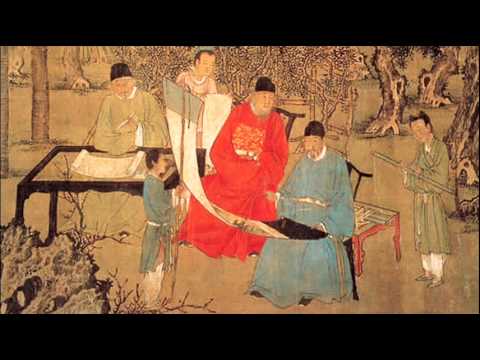 -- Penning another letter to the court, Li Rusong requests a greater complement of cannon for the siege. It is received somewhat coolly, as the court wished for more resources to reach the war with the Taungoo, but they relent, and within the month Rusong’s artillery has doubled in size. -- Admiral Chen Lin, using his own funds, buys a shipment of muskets from the Portuguese merchants of Macau, though with the huge demand for them from all corners of the Far East, he gets fewer than he desired. They are swiftly integrated into his fleet, adding a greater punch before any boarding actions. 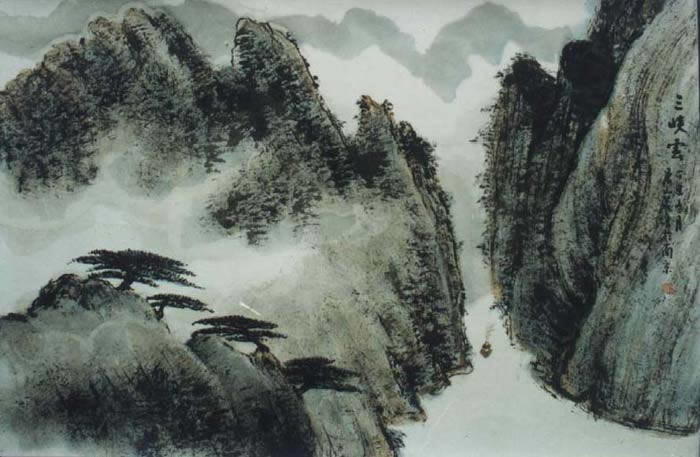 -- The Admiral also tries his hand at the finer arts, and paints a delicate landscape painting from the view of Weihai. Prominent are the fleet of warships patrolling, and the dark clouds near the horizon towards Korea and Japan. It is sent to the court, where it is received warmly, and the Admiral is congratulated for his fine artistic talent. Consolidation -- On the order of the Marshal, detachments of Japanese soldiers are called up from the reserves on Tsushima to garrison those cities taken by the Japanese so far. They are given strict orders to treat the Koreans with respect, and to seize what weapons they can from the populace. -- Kuroda Nagamasa leaves Jeju under the authority of two of the 8 Tigers of of Kuroda, Inoue Yukifusa and Kuroda Kazushige. They continue the work started by their lord, dumping the weapons seized into the sea. Nagamasa himself sails north, to aid the 7th Division at Seoul. -- Kuki Yoshitaka orders a further redesign of the Atakebune for greater cannon capacity, and even iron plating. But his shipwrights are left somewhat confounded -- they did their best last month, with help from the Spaniards, and to cover the ship in iron (either entirely or in patches) would lead to a shortage of the material for weapons, and make the ship too heavy to maneuver well. -- Nevertheless, using the previous design, work begins on refitting and building new ships to join the fleet in Korea. A mix of designs, approximately 15 ships should reach the fleet at the end of the month. -- Leaving Kyushu on a small fishing vessel, a nameless rounin arrives in Busan. His first week ends with him having killed a gang of 10 Japanese soldiers who had held a small Korean village for ransom. But he leaves before the villagers can learn his name. -- In the North, Prince Gwanghae sends a large contingent of his men to oversee the new guards. In many places they find the men engaging in small acts of extortion and smuggling, and they are quickly suppressed. To ensure no more repeats, the transgressors are strongly disciplined, and a strict timetable for training is put into place. But it's become clear that he has rapidly run out out of suitable recruits to fill his army and the garrisons with. -- The Prince sends two diplomats north, into the lands of the Jurchen tribe of the Ula. They are flanked by a large cavalry escort, perhaps a necessary precaution; the Jurchens have a long history of raiding into Northern Korea. -- Arriving at the court of the Jurchen beile Taiji, the men are forcefully placed in front of the prince, their guards kept under close watch outside the semi-permanent tent city. The diplomats give their message: in return for tribute befitting a lord of his stature, Taiji is given the opportunity to proclaim the military prowess of his people in battle against a different enemy.  -- The beile contemplates the offer. But the offer of tribute from the Prince of Joseon is too great to pass up. 4000 Jurchen warriors are dispatched south to fight these “Eastern Barbarians” from the Land of the Sun. They reach Hyesan by the end of the month, ready to bring battle and win glory and plunder for themselves, though the presence of the Korean cavalry prevent them from taking what they will from the people around them. -- General Kim Myeong-won writes to Sin Rip in Haeju, requesting the man move to protect Pyongyang in the North. Sin Rip tears the letter apart, appalled that he should be so ordered by the man. He marches his army to Kaesong, and begins to strengthen the fortifications there. The East -- General Kim Chung-seon in Gangwon sends a large contingent of his soldiery to meet up with the Righteous Army West of Sokcho. The army, made up of Buddhist monks and peasants, agrees to join them, as long as they can fight the Japanese at Samcheok. -- Marching quickly to the city, they find the bulk of the Shimazu forces have yet to arrive. Less than 1,500 Japanese soldiers man the city. They are outnumbered over 3:1.  -- Eager to throw the invaders back into the sea, the men of the Righteous Army attack without orders, throwing themselves at the walls of Samcheok. Volley after volley of shot and arrow steal away the lives of men. The Japanese, led by Yoshihiro himself, repulse attack after attack, until the bodies of the fallen form ramps up the walls. -- The Korean regulars watch impassively. Their orders are clear: to harass and raid the enemy, not to assault them head on. They are not willing to throw their lives away in a fruitless assault. -- Eventually, the Righteous Army pulls back and breaks the assault. Too many are dead, for no real gain. The leaders are suitably chastised by the army captains, and they pull back a few miles. -- At the end of the day, almost 1,200 Koreans are dead below the walls of Samcheok, and 300 Japanese are casualties. Yoshihiro has kept his foothold in Gangwon. -- It proves to be just in time, as the rest of his division arrives the next day. They begin moving out into the surrounding country, harried by small attacks from the Korean army. It proves to hamper their efforts to retrieve weapons, and the requisition of food from the people (already strapped from Kim Chung-seon’s efforts) easily pushes men to join the Righteous Army, rebuilding its strength. -- Stripping a detachment from his division again, Shimazu sends them north, where they land and take the city of Hungnam after fierce fighting, fiercer than they expected. The South  -- Katou Kiyomasa continues his siege of Gyeongju, and builds walls of circumvallation and contravallation around the city. His offer of surrender is refused. Gyeongju will not be taken without a fight. -- A large detachment is sent north to Pohang, and the city is offered a chance to surrender. The magistrate considers it, but word of the fate of Iksan has spread throughout Korea, and many fear the same will happen to them. Katou’s captains invest and seize the city after a bitter battle. Though they do their best to emulate the mercy of their daimyou, there are still many outrages done to the civilians of the city. -- Marshal Agostinho begins a series of lightning assaults along the southern coast of Korea: Masan, Jinju, and Suncheon all fall within two weeks. It is a magnificent movement, one that the Spanish write about eagerly to the Governor, and history will remember well, though by the end of it his men are exhausted. -- Abandoning the siege of Jeonju, Fukushima Masanori (who is already acquiring rumors of demonic nature around himself) marches south to join with the Marshal. -- Taking advantage of this break, Kim Si-mim wastes no time in sending the swiftest riders he can to the RIghteous Armies. The first, in Jeongeu, readily acquiesces to his leadership, and march to defend Jeonju. The other, however, refuses to let the demon run free through their lands. They immediately march south to assault Fukushima’s division.  -- Cursing idiot monks, Kim Si-mim orders his men to harass and delay Fukushima’s men, no matter their destination. They harry the column of troops well, and prevent Fukushima’s swath of destruction from extending more than a few scant miles to either side of his path. -- The Righteous Army pushes past Ki Si-mim’s men, and assaults Fukushima’s column as they march. But that is what the demon desired. -- Fukushima brings to bear the full might of his division on the outnumbered and outgunned Koreans. The battle is swift and the rout of the Korean irregulars complete, though Fukushima’s reputation is sure to create more soldiers in the peasantry. -- Cursing their impetuousness, Kim Si-mim continues to raid Fukushima’s men, but when he receives reports of Yukinaga’s march west, he pulls back to Jeonju. -- Reaching Suncheon, Fukushima’s men meet the Marshal’s. It is not a happy reunion. Seeing the quantity of plunder in the 5th division, cracks immediately appear in morale. Some of the men complain that it is unfair that Fukushima’s men should be so enriched with gold and women, while they (the victors and conquerors!) should spill their blood for no rewards, while others take the stance of their commander, and consider the 5th Division to be full of dishonorable scum. Fistfights become a common occurrence both between and inside both camps. -- The two divisions, uneasy together now, march south to seize Yeosu, and destroy the Korean navy at port. But the 5th Division’s wealth keeps them from quick-marching and taking the city by surprise, and by the time they reach the walls of Yeosu, Admiral Yi Soo-Sin is well aware of their approach. -- Admiral Yi looks at his position. He is bounded in by Japanese patrols, and the intention of the incoming armies is clear: to destroy the fleet in harbor. He cannot stay in Yeosu. -- Forming his fleet together, he does his best to sneak past the Japanese blockade. But the geography of the harbor, so tempting in its ability to defend, now hampers his ability to escape: the Japanese have formed strong guards at the three entrances to the harbor. -- Taking heart in his abilities, Admiral Yi decides to fight his way out. The Korean fleet bursts out the southwestern entrance, battering aside through weight of fire the squadron posted to deter their escape, and makes all speed to the west. The Japanese ships that can follow in close pursuit. 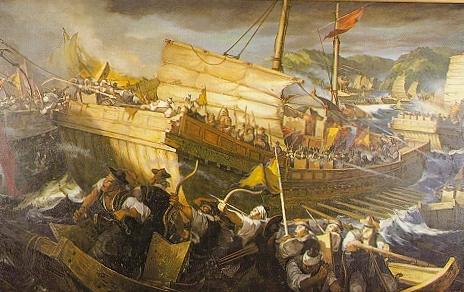 -- Over the course of the next week, the Japanese chase the Koreans, but Admiral Yi knows these coasts far better than they do, and though he is not intent on destroying his pursuers, he bleeds them well. Kobaya and bune alike shatter and crumple under the cannons of Yi’s ships, though they do their best to hound the Koreans. -- But soon enough, the Korean fleet outruns the Japanese, who are left with a trail of broken ships and stranded sailors. Over 40 ships are useless or sunk, while only 6 panoks and 1 geobok are lost. -- Yi begins attacking the Japanese supplies ships heading to Incheon. The two divisions at Seoul will need to find ways to supply themselves if this continues. -- Back at Yeosu, the city falls after a vicious fight for the walls. Putting his foot down, the Marshal forbids the destruction of the city, and executes some of Fukushima’s men who are found gang-raping a woman. Tensions continue to boil between the two divisions and the men. -- Away from the coasts, Kim Chung-seon takes his main force, and marches towards the city of Suwon, south of Seoul. He marches into the city and begins fortifying it against any attack from the South. -- This may prove a prophetic action on his part. On the orders of the Marshal, Takakage’s division tries its best, and makes attacks on Cheonan and Pyongtaek. The arrival of Kim’s army in Suwon, however, stops the daimyou from going further North. The Battle for Seoul  “Then out spake brave Horatius, the Captain of the Gate: "To every man upon this earth Death cometh soon or late. And how can man die better than facing fearful odds, For the ashes of his fathers, And the temples of his Gods." -- Kuroda Nagamasa’s division reaches Seoul after a careful march from Incheon. The greatest samurai in Japan is unwilling to make Terumoto’s mistake and rush into an ambush. He finds the 7th Division engaged in building fortifications to protect their own camp against outside assault. -- The siege so far has been relentless. The Japanese and Koreans fire their cannon and other weapons across the No-Man’s Land below the walls, and after the month of sieging, the outer walls are heavily scarred. The Japanese have constructed many siege devices, set to aid them in taking the walls and gatehouses of the city, both the outer walls and any inner fortifications that may exist. -- King Seonjo himself is seen on the walls every dawn, looking down on the Japanese as if daring them to take his city. His gaze is followed by the scattered shots of his Royal Musketeers, who are slowly improving their accuracy. The Japanese desire to wipe that look from his face, but orders from both division commanders are clear: Seonjo is to be captured, not killed. -- Inside the city, men are drafted and given weapons, defenses are restored and strengthened wherever possible, all the while the Joseon generals coordinate possible positions and routes of attack. Seonjo enjoins the bureaucrats to aid the generals beyond the call of duty, but most of them already fled the city when they first heard Incheon had fallen. -- Marshal Yi Il is a ubiquitous sight in the besieged city, speaking to captains and privates in small groups and before battalions, rousing their flickering spirits to defend the city. Though many are un- or barely-trained, they will stand their ground and fight. -- Around the city, small skirmishes break out between Terumoto’s scouts and raiders from the city, hoping to intercept any supplies to the army. But their job has already been done for them on the sea, and as the days go by without a shipment of rice from Incheon, Kuroda and Mori agree: the city must fall. -- The night between May 24th and 25th, the Japanese have 36,965 soldiers, and inside Seoul are about 21,000 defenders. Under a bright moon, waxing to first quarter, the battle is set to begin. -- The signal is a cannon blast in the dark depths of the night. Soon after, hundreds of flaming arrows descend upon the towers and rooftops just inside the outer walls of Seoul. -- The Japanese begin hammering four different parts of the walls. 3 are for Terumoto’s troops, and the last for Nagamasa’s. Some of the captains point out privately that Terumoto’s give him the closest route to the King’s palace, but few speak loudly about the arrangement. -- The Kuroda Daimyou himself has unsheathed his sword, and plans to lead his men into the breach personally. In contrast, the Mori lord opts to wait with his personal retainers before moving into the city. -- The bombardment is telling, with Nagamasa’s and Terumoto’s first breach being opened in the first 15 minutes. A great kiai roars from the besiegers, and soon a great swarm of men rush for the broken defenses. -- The battle for the first two breaches goes slowly, but steadily. Archers from the walls pour arrows into the heads of the attackers, until they are preoccupied by men scaling siege ladders onto the walls. -- All the while, more and more flaming arrows are fired into the city. Soon enough, a large conflagration has whipped up, illuminating the battle with a hellish glow. Women, children, and the elderly flee from the fight and the fire as best they can, and soon the night air is filled with a cacophony of screams, shouts, death cries, and wails, as well as the roar of cannon and collapsing buildings. -- The Koreans do their best at the first two breaches, but the addition of two more is too much, and they begin to pull back from the outer walls. Kuroda, covered in blood, ash, and gunsmoke, raises a great hue and cry from his men, and continues deeper into the city. -- At this point, Terumoto sees the defenders pull away from the wall, and deems it time to enter the fray. With his retainers around him, he rushes into the battle to direct his forces personally. -- As the Japanese force their way deeper into the city, the fighting both intensifies and spreads out, as soldiers burst through thin walls to continue battling opponents. -- As the Mori Daimyou seeks to reach the furthest of his troops, though, a huge counterattack led by Yi Il assaults his Easternmost force. Terumoto, utterly furious at this roadblock to his seizing the palace and the King, wades into the fight, roaring his hatred for these peons, his sword ringing out stroke after stroke through the massed Koreans. It is only the scrabbling hands of his retainers pulling him back into the Japanese lines that prevents the Daimyou from attempting to cut through the whole force himself. -- A runner makes his way to Kuroda from the Mori forces. If he leads his men through the back roads and alleys, he can surround Yi Il’s force! -- Kuroda takes a moment and thinks. In the distance, he sees the King’s palace, rising over the skyline of Seoul. Spitting out a mouthful of red saliva onto the ground, he thanks the runner for his report, but he is certain that Mori-dono is capable of handling this counter-attack on his own. Rallying his men, Kuroda aims for the palace. -- To get there, he has to force through a series of tight and winding streets, held by Kim Myeong-Won’s troops. It’s terrible fighting, coming down to unarmed blows and paving stones torn from the streets. But step by step, the Japanese force back the Koreans, advancing over motionless bodies. -- As the Eastern horizon begins to brighten into purples and oranges, the Kurodan soldiery are battering down the gates to the palace, fending off attacks from inside and outside the palace. Nagamasa himself aids in swinging the battering ram, laughing as the wooden gates buckle and warp. -- With a great crack, the gates to the palace are smashed open, allowing the samurai to pour into the compound, intent on finding the King. -- As the soldiers rush through the hallways, they cut down any man they come across, unwilling to let any high-ranking officials escape, though mostly they kill servants and minor functionaries. But there is no sign of the King. -- Kuroda doesn’t let that stop him. Bounding up ladders like an armored monkey, he carries two huge banners up to the roof of the palace. On the top, he can survey the whole city, a significant section of which is still on fire. His kabuto helmet is missing one of its golden horns, and the other is significantly shortened. He hurts as well, but he does not let pain stop him. Laughing triumphantly, Kuroda unveils the two banners, letting them flap in the morning wind. -- As dawn peeks over the world, Terumoto, having pushed back the counterattack for a brief respite, looks to the palace and sees on the roof the great waving banners of the Toyotomi clan, and horrifyingly, the wisteria tomoe of the Kuroda clan. Stumbling on a step of wet blood, a hand grabs him under the armpit to hold him up. Throwing off the help, Terumoto regains his footing, and points a trembling finger to Kuroda’s banner. -- “I curse him!” the Daimyou roars, “I curse his honorless ancestors, I curse his perfidious self, I curse his worthless progeny! May all the demons of Hell torment his damned soul, waking or sleeping, at rest or at work! And may he return to life in the form he should truly possess, as an insignificant and disgusting worm!” -- Falling to one knee, Terumoto’s retainers make a circle around him, but it’s unnecessary. Seeing the Japanese flags over the palace was too much for the defenders, and in a retreat, far more organized than expected, Kim Myeong-won and Yi Il escape the burning city through the north, though they have so few men compared to the day before. -- Making their way north, the two generals stop at Kaesong, and try to take stock of their situation. Yi Il has 2,489 men, and Kim Myeong-Won has 2,107. Over 16,000 Korean soldiers paid the ultimate price. When they receive word that Seonjo has reached Pyongyang, the site of the second court, both men heave huge sighs of relief. -- In the smoking city of Seoul, Kuroda and Terumoto count their troops as far away from each other as possible. Kuroda has lost 1,765, and Mori 6,888. But the city of Seoul is now under Japanese command, and the Japanese soldiers waste no time in feeding themselves, though they do not obliterate the city like Fukushima’s men. -- Both daimyou are wounded, but Kuroda has the worst of it, with cuts and wounds covering his body, and an incessant coughing up of blood. He may need to take time to recover, lest his wounds overtake him. Disposition of Forces, June 1 1592 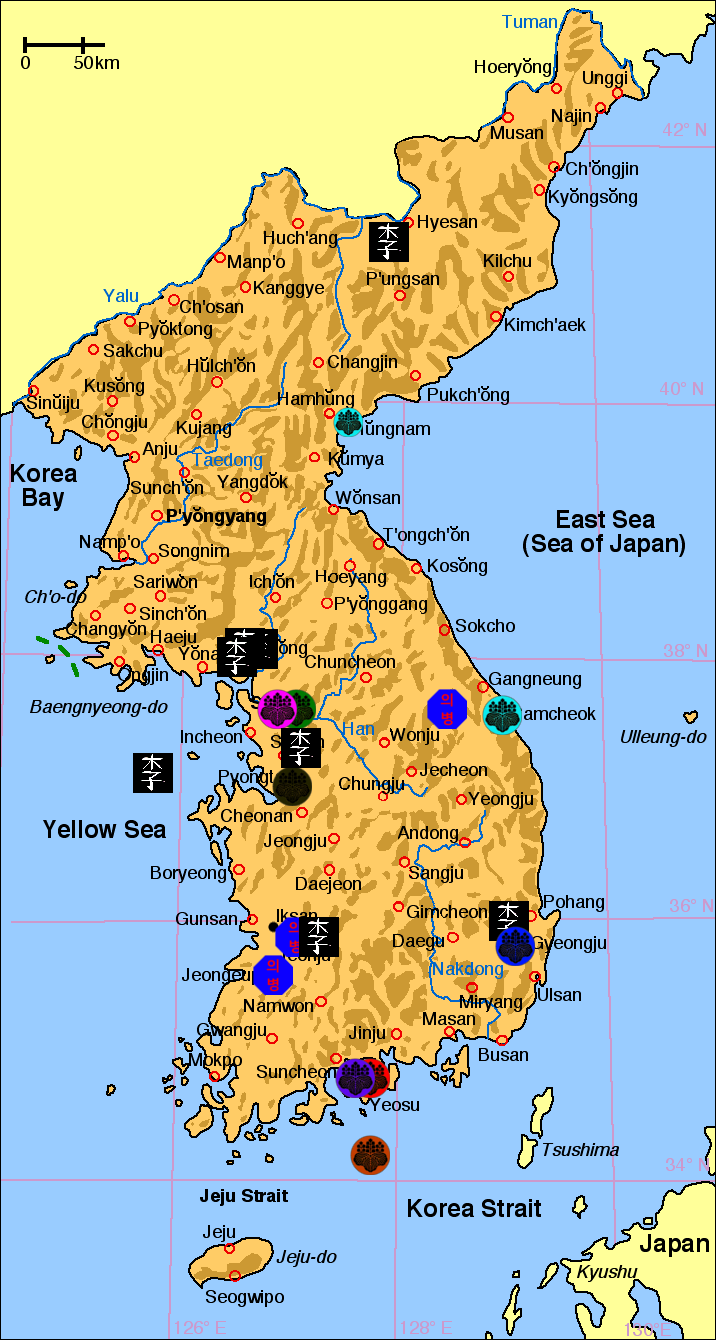 Japan 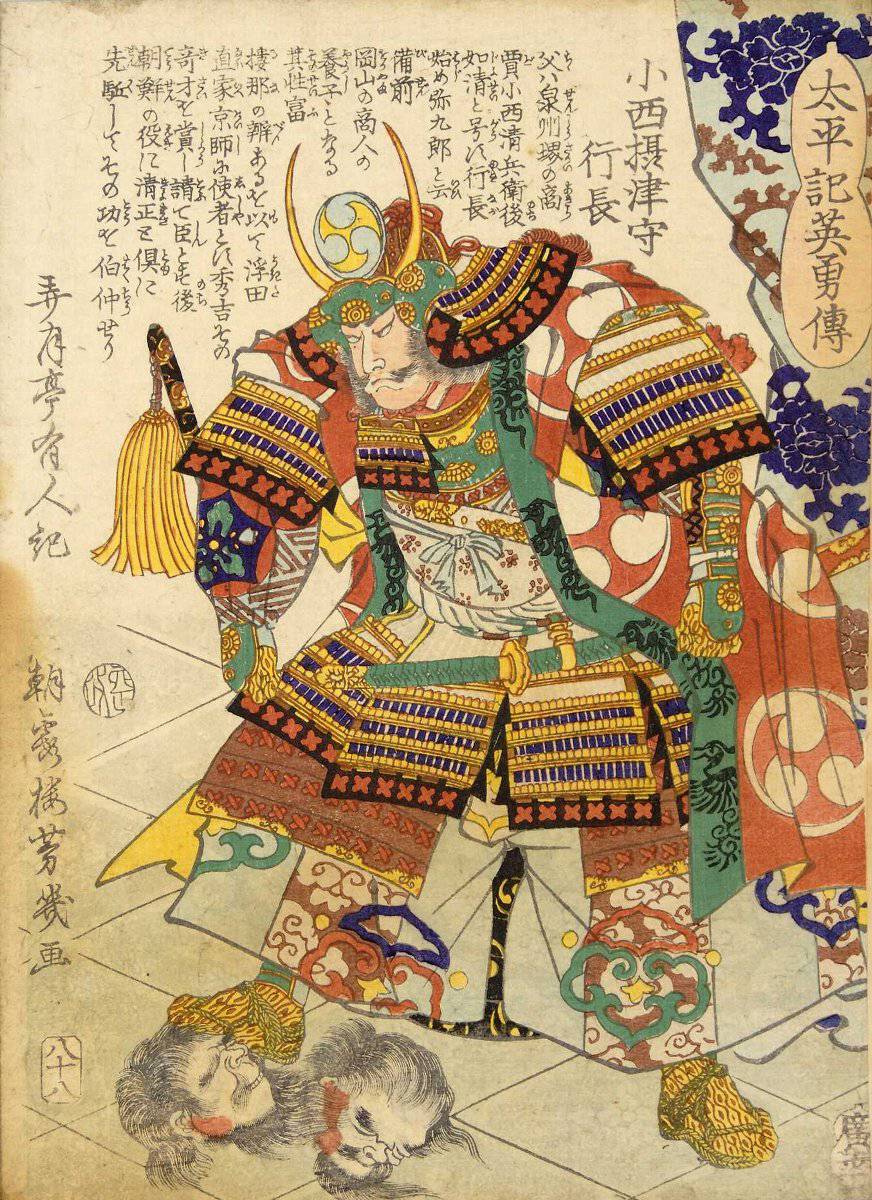 872x1200 Konishi Yukinaga (Dom Agostinho) - 1st Division, Marshal of the Army, 15,837 troops, Red, Yeosu. Taken - OscarDiggs/oscardiggssa@hotmail.co.uk 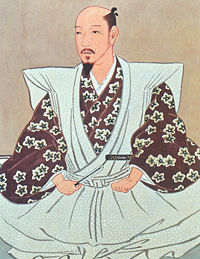 Katou Kiyomasa - 2nd Division, 22,018 troops, Blue, sieging Gyeongju. Taken - Tatankatonk/tatankatonk22@gmail.com  670x658 Kuroda Nagamasa (Dom Damiao) - 3rd Division, 8,582 troops, Green, Seoul. Taken - Frionnel/phffernandes@gmail.com 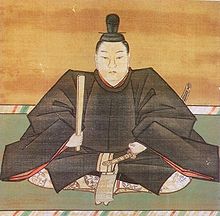 Shimazu Yoshihiro - 4th Division, 12,305 troops, in main detachment (Samcheok), 1,076 in Hungnam, Light Blue. Taken - Gantolandon/gantolandonsa@gmail.com 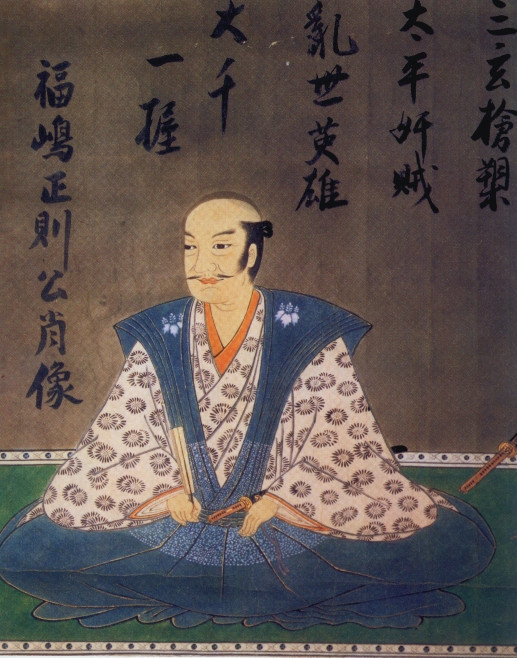 517x658 Fukushima Masanori - 5th Division, 22,519 troops, Purple, Yeosu. Taken - A RICH WHITE MAN/moodinconsistency at google mail  Kobayakawa Takakage - 6th Division, 13,689 troops, Brown, Pyongtaek 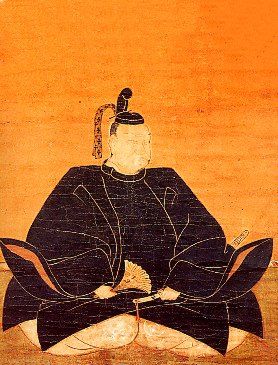 Mori Terumoto - 7th Division, 19,730 troops, Pink, Seoul. Taken - Takanago/ktakanago@gmail.com  759x1368 Kuki Yoshitaka - Admiral of the Navies, 450 warships (with more in reserve), Umber. Taken - Proposition Joe/PropositionJoe.SA@gmail.com Joseon 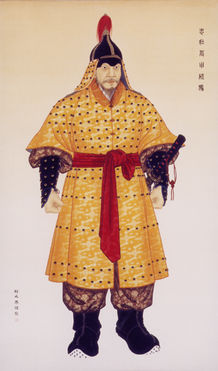 Sin Rip - General of Hwanghae, 5,000 troops, Kaesong  Jeong Bal- General of Gyeonsang, 8,000 troops, Gyeongju 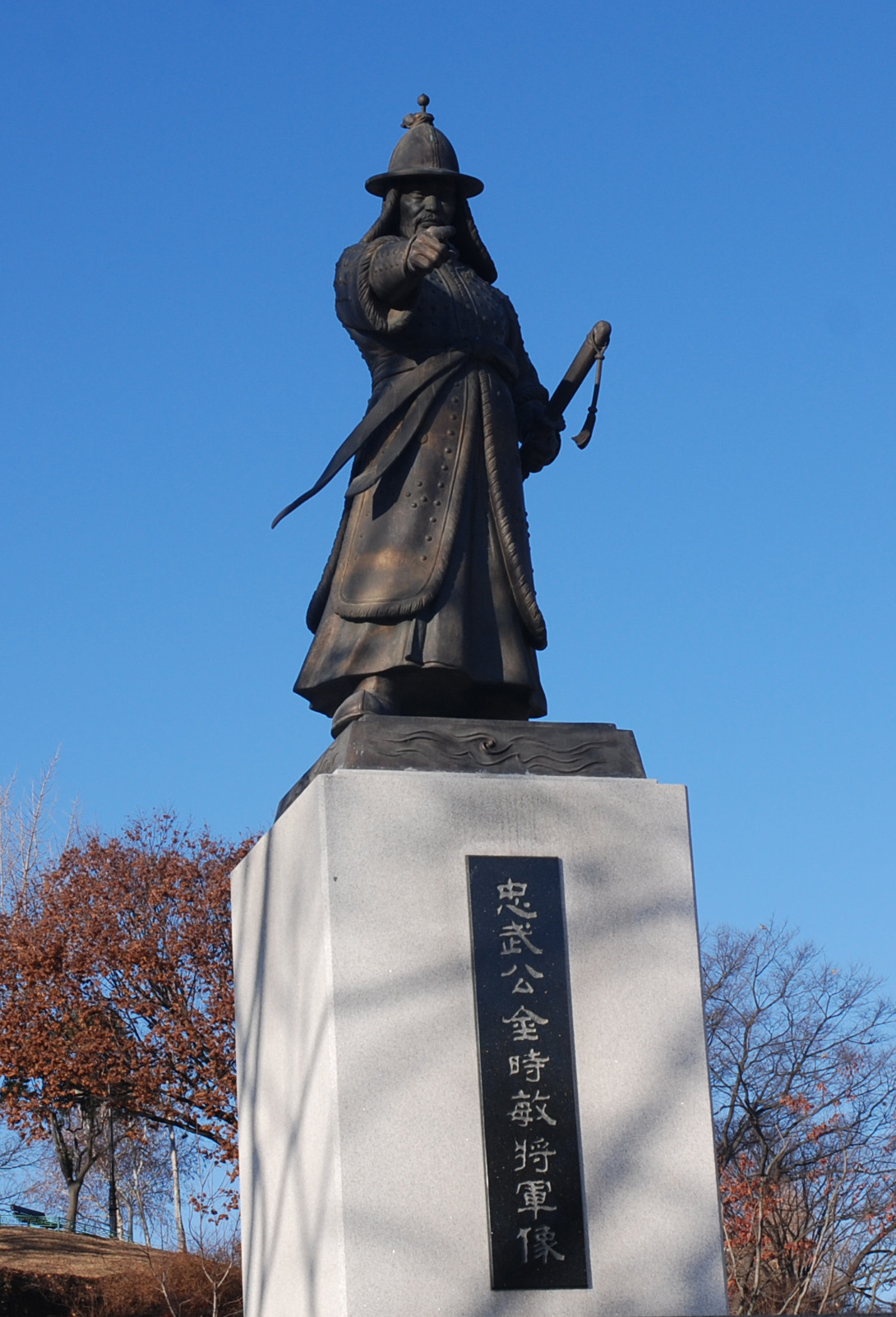 1090x1602 Kim Si-Mim - General of Jeolla, 7,000 troops, Jeonju. Taken - MadRhetoric/non_Ay_mous (at) yahoo (dot) com 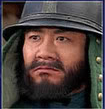 Kim Myeong-Won - General of Pyongang, 2,107 troops, Kaesong. Taken - Rogue0071/rogue0071sa@gmail.com  Prince Gwanghae - General of Hamgyong, 21,000 troops (+4000 Jurchen mercenaries for 6 months), Hyesan. Taken - Enjoy/sw_faulty@hotmail.com  Kim Chung-seon - General of Gangwon, 11,500 troops, Wonju. Taken - Slaan/wlyle at indiana dot edu  Yi Il - Marshal of Gyeonggi, 2,489 troops, Kaesong. Taken - Ramba Ral/borisstukov at aim .com  649x1063 Yi Soo Sin - Admiral of the Navies, 122 panokseon ships, 17 geobukseon (turtle ships), Yeosu. Taken - Gorgo Primus/messedupjoe @ hotmail Ming China 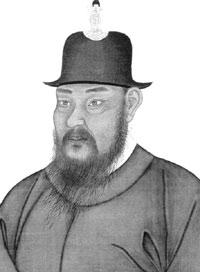 Li Rusong - Exceptional commander, currently en-route to deal with the Mongol rebellion. 2,000 personal troops, larger garrison forces attached to deal with Mongols. Taken - Fall Sick and Die/ccferrara@gmail.com  Li Yingshi - Current commander of Dalian, a large port on the Liaodong peninsula, very close to the border of the Yalu River. 1000 troops.  Admiral Chen Lin - Defender of the Ming coast. Weihai, 67 ships. Taken - Maximo Roboto/maximo DOT roboto at gmail you know the rest
|
|
|
|
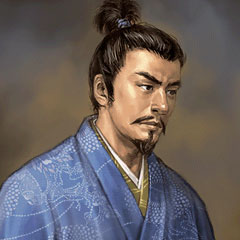    毛利 輝元 Mōri Terumoto, Commander of 7th Division A Letter to the Taikou posted:Taikou, A Message to the Commander of 3rd Divion posted:Kuroda, An Entry in Terumoto's Journal posted:Curse that Kuroda! Curse his perfidious self! Curse his worthless progeny! May all the demons of Hell torment his damned soul, waking or sleeping, at rest or at work! And may he return to life in the form he should truly possess, as an insignificant and disgusting worm!
|
|
|
|
 quote:Personal Diary quote:Speech to his men
|
|
|
|
 Kim Myeong-Won Letter to Sin Rip posted:You seem to have misinterpreted my previous letter. It was not a command from a superior, but a profession suggestion, as to better coordinate the war effort. The King has escaped to Pyongyang - and where is the garrison to greet him? Building pointless defenses in Kaesong! The needs of the nation outweigh the needs of your pride - I urge you to remember this in the future. Speech to his men posted:Men, you have just fought one of the greatest contests in our history. The nation has suffered but it survives. The heart of Joseon is not a city - it is its people and its King! Because of you, men, the King lives, and the people still have hope. Though we suffered greatly, we dealt a grievous blow to the enemy - let us deal ten or twenty such blows, and drive them from our land!
|
|
|
|
 1090x1602 Kim Si-Min Coded Message to Jeong Bal posted:Beware of demons that come out of the setting sun. Speech to Troops posted:Gather the righteous within our reach and let them take seed in village and city, field and stream, mountain, valley, and forest. Keep them well tended to, and they shall bloom from the corpses of the invaders. Our land will grow rich with their blood.
|
|
|
|
  "China" Dirck Gerritszoon Pomp "China" Dirck Gerritszoon Pomp Having braved the Cape and traveled much of the East I have witnessed many things, from women who show no modesty before god clad in only grass skirts, to great and gilded Imperial cities of infinite wonders. However it was first and foremost the opportunities for both our Republic and our own purses that overwhelmed me about these most foreign lands. The many nations of the Orient overflow with vast riches of silk, silver, porcelain and spices, open to any man who arms himself with an enterprising spirit and a seaworthy bark. Yet the Portuguese and Spaniard's century-old monopoly on this commerce has made them weak and lazy, destined to collapse at the first sign of fair competition. We have a duty to provide it. As we threw the Catholics from our Republic so shall we throw them from the East. Our Fluyts await us at the docks, the finest sailors of Holland are enlisted, and the necessary provisions purchased. Let us embark, gentlemen, for God, for the Republic, and, most of all, for sacred profit!
|
|
|
|
a bad enough dude posted:As we threw the Catholics from our Republic so shall we throw them from the East. Our Fluyts await us at the docks, the finest sailors of Holland are enlisted, and the necessary provisions purchased. Let us embark, gentlemen, for God, for the Republic, and, most of all, for sacred profit! (OOC: This will go no better for you than it did historically! I look forward to being angry in 6 turns when word of your departure shows up, right around the time you do.)
|
|
|
A Letter to the Japanese Forces near Seoul and Suwon,code:P.S  vvv Ancestors, I need all the help I can get! A (Necessarily Vague) Speech Before the Upcoming Battle: code:May 1592 Earlier in the day in the commandeered warroom at The Goat and the Qing Princess: code:
|
|
|
|
|
Because of the new year and a small paid project I've started, this next turn will probably take some time to go up, so I'll set the deadline for  1/2/2013 at 6 PM MST. 1/2/2013 at 6 PM MST. Again, getting them to me before the deadline is best. Again, getting them to me before the deadline is best. Also I'd like to reiterate the power of posting: for example, had Ramba Ral not posted about inspiring his men, his turn would have been much less effective, and far fewer of the Japanese would have been struck down. The black magic of the turn is powerful!
|
|
|
|
Konishi Yukinaga, Commander of the First Division, Marshal.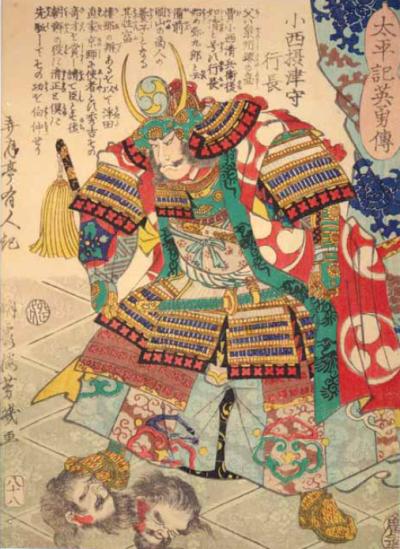 During the victory celebrations of Yeosu, Konishi learns of the fall of Seoul. To celebrate the two great victories the Japanese army has gained, he quickly composes and performs a 5 verse poem, written in the traditional Haiku style. He then follows this up with a short speech. Seoul falls, like a head, Struck from a defeated foe, Howling eternally. The enemy fights, Ever onward, towards defeat, Inevitable. Against enemies, Haggard friends are filled with rage, Calmed by victory. Victory unchecked, Against a pathetic foe, Cornered rats, soon dead. They fight still, uncaring, The Katana of fate set, Against necks, soon cut. Warriors! Seoul has fallen, along with nearly 20000 Korean regulars. Our aggression is unchecked and unstoppable! Even now, new plans are being drawn amongst the Daimyou, to send you forth towards even greater victories. We shall not be stopped! Our triumphs shall go down in history, and each and every one of you shall be recorded as a hero! We must not falter or tarry in our movements. Our unstoppable movement is what brings us our strength, and through it, we shall climb the sharp slope of victory on the bodies of our crushed enemies!
|
|
|
|
 quote:Letter to General Sin Rip quote:Speech
|
|
|
|
Hey folks, just checking in, sorry I haven't been on IRC, the project I'm working on has been much much larger than I first anticipated. I'd still love it if everyone could get their turns in today, but I cannot guarantee the turn will be up before next week, which means if you can't get it in today, you've still got some unofficial time to get it in. Sorry for this lapse!
|
|
|
|
Admiral Yi Sun-Sin Grand Admiral of the Corean Armada  582x899 Speech to the Fleets posted:Gentlemen. We were and are the first line of defense for Chosun; every Waeguk barbarian who fights in our lands must first come from the seas - must first touch the shores. It is our duty until death to prevent them from doing so. These are our seas and our shores and every battle fought on land must first be lost on sea. I see several barbarian armies in Corea, but I see many more back on their destitute island preparing for arrival.... we must not not lose again... We must destroy the barbarians ability to supply their troops by sea, and thus turn what was our defeat at sea into our victory, and we must destroy the barbarians ability to bring any more of their 'running dogs' safely to our shores. Corea rules the waves, and we shall be ever victorious if we remember this and stay true to ourselves, our ancestors, and the Five Relations.
|
|
|
|
 Don Gómez Pérez Dasmariñas, Governor General of the Spanish East Indies Private Conference with Key Merchants posted:...in closing, I trust you've all seen the benefits of my proposal. Only one side has shown an openness to our Mother Church, only one side offers a real partnership between Oriental and European. Others may seek to buy your goods, but they remain heathens, totally rejecting the light! If this was to change, maybe so would our position, but the course now is clear. May God be with us all.
|
|
|
|
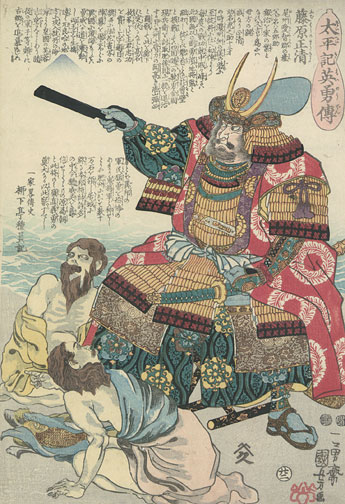 quote:Excerpt from a speech given by Katou Kiyomasa, to the troops of the 2nd Division surrounding Gyeongju, June, 1592
|
|
|
|
    毛利 輝元 Mōri Terumoto, Commander of 7th Division A Message to the Taikou, and to the Commander of 3rd Division posted:Honored Taikou, and Brave Commander Kuroda, Speech to the Japanese Soldiers in Seoul posted:Men of 7th Division, and Men of 3rd Division!
|
|
|
|
 422x342 Kuki Yoshitaka Speech to the Captains of the Japanese Fleet posted:Our fleet has lost many ships and many men due to the insolent Korean Fleet. However, we will have our revenge. We will light the sea on fire and sink every ship, leaving every man in their fleet to drown in the boiling waters. The Koreans may be sitting smug inside their Turtle Ships for now, but we all know that we Japanese are the superior warriors. We have made this apparent to the world with our masterful campaign on land and the Koreans have only been able to respond with an embarrassing defense of their homeland. With pitiful numbers and smaller numbers the Korean Navy is useless and they will realize this when we raid their coasts and burn every village to the ground. They have no hope of stopping us, Japanese control over the sea is inevitable.
|
|
|
|
 Prince Gwanghae, General of Hamgyong To His Majesty King Seonjo: Honoured Father, It pleased me greatly to learn that you had chosen to temporarily move your court to Pyongyang. A royal visit to the north of your Kingdom is greatly appreciated by all the men on the border, especially since your attentions have been focused south as of late. I also profess to be most gladdened by your magnanimity towards the defeated Nihon barbarians in allowing them to huddle for a while in the vast splendour of your palaces in Seoul. Perhaps the barbarians will pick up something of artistic taste before they flee in shame to their paper huts! Truly, yours is a most gracious and peaceful reign, and all your loyal subjects are awed by the majesty of your wisdom, even forming into Righteous Armies to spread news of your kingdom's many victories to all and sundry in the south (in truth, I believe your glorious generals have been far too humble in regards to their role in this; crushing insects is disgusting work, and their stomach for this task, however trivial it appears to outsiders, should be commended). Yours with the deepest supplication, Prince Gwanghae
|
|
|
|
Konishi Yukinaga, Commander of the First Division, Marshal. Excerpts from The Way Of Honour. The first code of conduct for the Japanese Military, penned by Koniski Yukinaga. 58 different rules are included within the full text. “The Japanese Army is an Army of Honour. To be Honourable is to be a Warrior. To be Dishonourable and a Warrior is as impossible as being Honourable and Dishonourable. To be Dishonourable, yet to still name yourself a Warrior, is the worst crime against the people and will be punished with no reservation. … It is Dishonourable to strike at those who cannot defend themselves. It is Dishonourable to steal from the vanquished. … It is Dishonourable to torture the defeated. It is Dishonourable to pillage land under your protection. … It is Honourable to fight injustice whenever it occurs. It is Honourable to defend those under your care from the Dishonourable."
|
|
|
|
    黒田 長政 Kuroda Nagamasa Leader of the Third Division Commander of the Eight Tigers and Twenty-Four Riders Conqueror of Seoul and Jeju-do Seoul has fallen and the vision of their king running away, dishonored and scared, sends a bold message to the Koreans. Japan will not be defeated and it's only a matter of time before they accept our rule. Terumoto! I have finally rested enough to respond to your claims. Reckless actions? HAH! It's only the way of the warrior to die with a weapon in hand. No general should watch his troops fight from afar. When my men look ahead and see me leading an assault, be assured that they are all thinking the same: "This is a man worth dying for!" Of course, the responsability for the king's escape is all mine, and i know that i ultimately failed. The vision of despair that is the Kuroda tomoe waving above the palace is not complete without the korean king shackled below it. Rest assured that i have sent the Taikou an honest report of this battle. Nevertheless, i am not one to waste time looking at the past. When i close my eyes, the only thing i can see is the image of Pyongyang burning, and Seonjo with it! To Victory!
|
|
|
|
.svg.png) 220x220 島津 義弘 Shimazu Yoshihiro, Commander of the Fourth Division To the rebels of so-called "Righteous Army". Your king has proven to be a miserly coward, who would rather escape than face his enemies in combat. His magistrates has fled even before him. These people are not fit to rule Joseon and it is our moral obligation as warriors to conquer it. We are the sun which will scorch this land of cowardice, mediocrity and incompetence. You are only a bunch of monks and peasants, yet you claim to be able to stand against us? How many battles you survived? How many battles have you ever seen? Even the youngest of my soldiers has more likely fought more than several ones of you combined. You are not only outnumbered, but also less experienced: no zeal can substitute for that. I see only one sensible choice before you: surrender. You will lay down your weapons, then be released to live the rest of their lives as peasants and monks. None of you or your relatives will be hurt. We will take some of your supplies to feed ourselves, but we will not starve you. It will not be comfortable or pleasant, but you will live through that. If you, however, choose to oppose us, let me warn you: there will be no mercy. As every warrior knows, when the swords are drawn, the time for diplomacy is over. We will kill every single one of you. The ones who surrender, will be beheaded. The ones who escape, will be pursued - and everyone who shelters them, will also be killed. You are choosing between life and ignoble death in the name of that ignoble creature without a spine who calls himself Seonjo. The choice is yours and I suggest you make it soon.
|
|
|
|
OOC: MEANWHILE, IN GYEONGJU -
|
|
|
|
Turn 3 - June 1592 The Southern Barbarians -- The Dutch flotilla continues on its way to the Far East. It’s impressive size keeps smaller pirates and Iberian corsairs from attacking, an ever-present threat on the trade lanes. As the flotilla follows the African coast south, they set down a few merchants to set up small trading posts to be used for the resupply of other ships. But only time will tell if they will survive and prosper. -- In Manila, Governor-General Gomez meets with some of the key Iberian Factors and merchants in the Far East. He lays out the political situation to them, and explains to them that although he cannot by his own authority force where they trade, he makes it very clear that he believes the best interests of the Holy Church and the Iberian Union lay with the success and prosperity of the Japanese, who have at least shown a willingness to hear the Gospel. -- The merchants hear his words, and immediately Iberian trade with Korea dries up. Even more ships dock in Nagasaki by the day, and some of the Jesuits wonder if the docks should be expanded even more. Some of the European sailors think the port might rival that of mighty Amsterdam soon if this keeps up. -- In Nagasaki, Alessandro Valignano sequesters himself away further in the study of Polish. He is taking to the language well, but matters may make it nugatory. -- When Gomez asks for Jesuit volunteers to travel with Spanish guards to Jeju, three European Fathers answer the call, and leave for the Japanese-held island. This sets off the internal politics of the Order, though. -- The local Superior of the Japanese mission, one Fr. Juan Velazquez, is incensed. Making his way to Valignano’s home in Nagasaki with a large crowd of ecclesiastic supporters, he finds the man teaching three of the younger acolytes (whom had been excepted from their regular studies by the Visitor) on the virtue of obedience. -- Fr. Velazquez demands to know what in God’s name Valignano has been doing. That the Spanish colonial governor is the one to break Christianity into Korea is a travesty, he says, and the fact that the Taikou had a very *pointed* conversation with the man about the loyalty of the Jesuits makes him think the Visitor might have put the lives and fortunes of the entire mission in Japan into jeopardy. Fr. Velazquez gives the Visitor an ultimatum - if he will explain his actions, Velazquez might not ship him on the first boat back to Rome with a list detailing his failures.  Cardinal Ximenez, you will need to post your response in the thread for this challenge! Cardinal Ximenez, you will need to post your response in the thread for this challenge! -- A messenger from the Southwest arrives, accompanied by two Portuguese explorers - Blas Ruiz and Diogo Veloso. The messenger has come at the behest of the Kampuchean King in Longvek who, with the friendship of these two men, seeks to gain the help of the Iberians in his wars against the Siamese King Naruesan. The explorers urge the Governor to accept, and send what aid he can to the King. But it is up to the Governor how he responds. Great Ming -- In Peking, news reaches the court of the fall of Seoul, and the rapid advances made by the Japanese armies. The news sends the court into a spasm of speculation and worry. How could this have happened? How could Seoul have fallen so quickly? Has Seonjo betrayed the Ming? -- The arrival of a haggard messenger from Seonjo brings the court to silence. The man, exhausted and muddy from his wild ride, relates the message from King Seonjo. -- “Honored Friends, Joseon turns to the Son of Heaven, as a child to his father, and seeks aid and succor in our time of need. Devils from Wo have brought war on our lands, in a misguided quest to unseat the most glorious and wise lord of the Middle Kingdom.” -- A report, sent through Admiral Chen Lin’s efforts, corroborates the messenger’s story, explaining in terrible detail the massacres and outrages performed by the Japanese on the powerless Korean peasantry. -- The court is divided. One faction, under the eunuch Sima Zhao, desires immediate action in Korea. The other, under Confucian scholar Yuanzi, says that although the relationship between the two states must be maintained, the Ming must break their current two opponents before striking the dwarfs of the Eastern islands. Right now Yuanzi’s faction holds sway, but Sima Zhao is not without authority. -- Rumors go out among the more lawless harbor towns along the coasts that the Japanese ships are lightly defended, and loaded with plunder. Furthermore, it’s said that the government will pardon any “patriotic volunteer” who attacks the Japanese. Local magistrates try desperately to quell the rumors, uneager to be seen as forcing the hand of the court, but it doesn’t stop.  -- The pirates are given further incentive when Admiral Chen Lin engages in raids against the most notorious hideouts. His sailors show themselves well-disciplined, and drive the pirates from the Ming coast towards Korea. Many pirates decide to try and base closer to the war-torn peninsula. -- At Ningxia, Li Rusong wastes no time before the Mongol threat. Sending swift riders out, he gathers garrison units from the cities south of Ningxia. Another 8,000 men answer the call, and General Li’s camp now holds almost 30,000 men. -- Rusong gives a long speech to his men, exhorting them as sons of the Yellow Emperor, children of the Dragon, to destroy the Mongol menace! Will they allow themselves, heirs to Han antiquity, be bullied by barbarians? Although some of the rhetoric falls on the deaf Turkic and Tangut ears of the local garrisons, they are not willing to submit to some puffed-up khan. -- Li experiments with different shapes of ammunition for his cannons, but the experiments are a clear no-show. The pointed rounds bounce around the cannon barrel even more than usual, and have little accuracy. 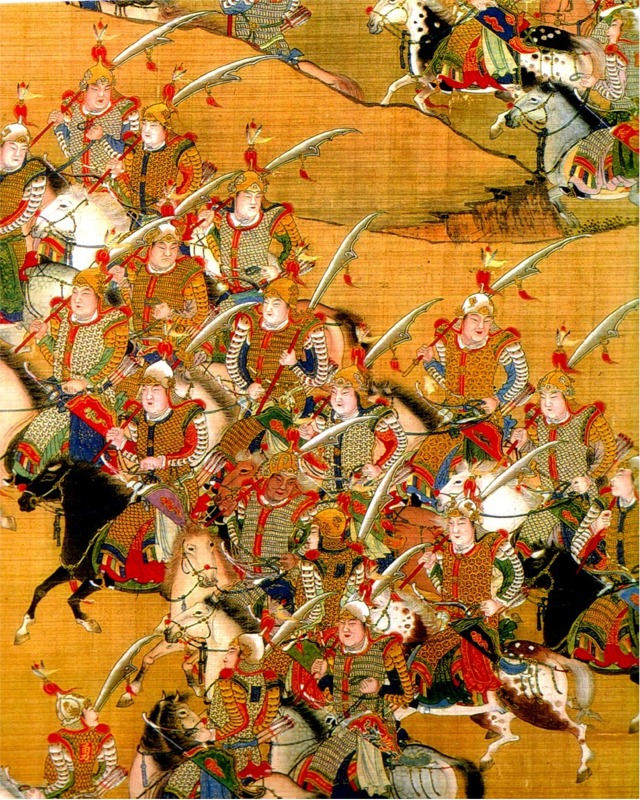 -- The Mongols themselves seem to be massing their numbers. Shan Yu now has a great host, and it is clear to those in the Chinese camp that the nomads will not wait to be attacked, but will try to assault the army on their own terms soon. Consolidation -- In Seoul, Kuroda Nagamasa tries to recover from his wounds, but it seems too late: Kuroda continues to deteriorate, even as he sends his vassals to act in his stead, his personal physicians almost give up hope, and his Jesuit chaplain anoints him with the blessed oil for the mortally set. But Kuroda survives. His slow recovery after this nadir is exclaimed the work of the Lord Jesus, and two more of his 24 Riders take baptism. Kuroda has survived the worst, but he is still weak. -- On Jeju, the hard work of administration, directed by two of Daimyou Kuroda’s most trusted lieutenants, begins in earnest. The island is divided into fiefs, to be parceled out as the Daimyou sees fit. On the Daimyou’s pay, men begin work on repairing some of the infrastructure damaged by the initial invasion. Although the Koreans’ hearts are not softened overmuch by this gesture, they are at least not rising up in revolt. -- The arrival of the Jesuits on Jeju introduces a new element, as the three Fathers debate whether they should work on converting the conquerors or the conquered. After a fierce debate they decide to spend time learning the Korean language, and minister to what Japanese Christians as are there until then. -- In Gunsan and Jeju, the Japanese begin building ports designed for their warships. It is slow work, and it will be some months before ships can be repaired at the sites, let alone built, but by the end of the month enough supplies of gunpowder and other necessities have been stockpiled there from Kyushu and Tsushima that the navy can now resupply from them, making their turnaround times for patrols much shorter. -- Hearing reports of more of his men killed by a nameless man, Yukinaga Konishi demands the rounin’s presence at Yeosu. After a short search, the man is brought to the Marshal. He gives his nom de guerre: Kuwabatake Sanjuro. The Marshal demands to know why Sanjuro has been slaying his soldiers. -- Sanjuro slowly looks the Marshal in the eyes. “Must not weeds be removed, so that flowers may grow?” is his response. Those in attendance wait for the insolent man’s death, but the Marshal only nods his head slowly. -- Inspired by the rounin, Marshal Agostinho Konishi writes a new kind of manual, a manual of conduct meant for the entire force under his leadership. Entitled The Way of Honour, it describes what deeds are acceptable and unacceptable in the pursuit of victory, though it prescribes no detailed penalties for transgressors, a postscript exhorts Division commanders to slay the worst lawbreakers. Though the honor-conscious samurai ponder the prescripts, the peasants who make up the majority of the armies quietly resent this attempt to stop them getting what they feel they deserve. -- Dom Agostinho takes Sanjuro as a personal retainer, and directs him and 1000 of his men to spread themselves throughout the conquered areas, and to ensure that the prescripts of honor are upheld, and that justice is maintained with respect to the conquered. -- The Daimyou of the other divisions bristle at the Marshal’s attempt to police their divisions. Though Kuroda’s and Katou’s men take well to the constrictions, the others are decidedly ambivalent about it, and most extreme are Fukushima Masanori’s men who laugh off the womanly restrictions, and proclaim that conquerors need no law. Some of these men will regret saying such, in consideration of later events. -- With Taikou Hideyoshi’s backing, the daimyou of Japan are asked to contribute further to the war effort in Korea. The appeal lands with resounding tepidity. Many tens of thousands of their men are already at war, either as soldiers, or as sailors, navvies, teamsters, and the huge supply chain keeping the armies equipped and fed. Though they have the resources, the will needs to be cultivated. -- The reinforcement troops on Tsushima begin to be called up to garrison the various cities and fortresses taken by the Japanese armies. It will take some months before the garrisons on paper are filled with actual men, however. -- In North-west Joseon, Admiral Yi orders the construction of more ships. With King Seonjo’s enjoinder to the bureacracy to help the war effort however they can, it is the keen scarcity of quality metal getting to the cannon- and shipwrights that proves to be the hard bottleneck for production. At the end of the month, 5 panoks and 2 geoboks are built. -- In Prince Gwanghae’s province, over the objections of the local magistrates, the last of the original garrisons are stripped and brought to Hyesan for training. Throughout the Northeast the cities are now guarded by a collection of vagrants, former bandits, old men, and young boys. -- The Prince also sends his Jurchen mercenaries down south to Kaesong, and gives them up to Yi Il’s command. The accompanying two thousands of Korean cavalry helps keep the looting done by their charges to a minimum. -- In Kaesong, the three Joseon generals take stock of their situation. Combined they have around 16,000 men. Yi Il makes the call - the armies are to abandon Kaesong, and regroup at Pyongyang. Though Sin Rip is loath to abandon his province, the Marshal’s orders are to be kept. -- Yi Il works hard to coordinate the various groups in his army, and although it is easy to get the Joseon men working together, it is harder for them to work with these Orangkai barbarian mercenaries. Many do not trust them, though the Jurchens boast about their honor constantly. -- In Pyongyang, King Seonjo decrees that the invaders are to be treated as little more than common criminals, and that should any felon or citizen bring the head of a Japanese soldier to a loyal magistrate, they are to be paid a bounty. Although news of the law does not reach too deep into Japanese-held territory, it will surely feed the growing sense of outrage many civilians still feel at the invaders. 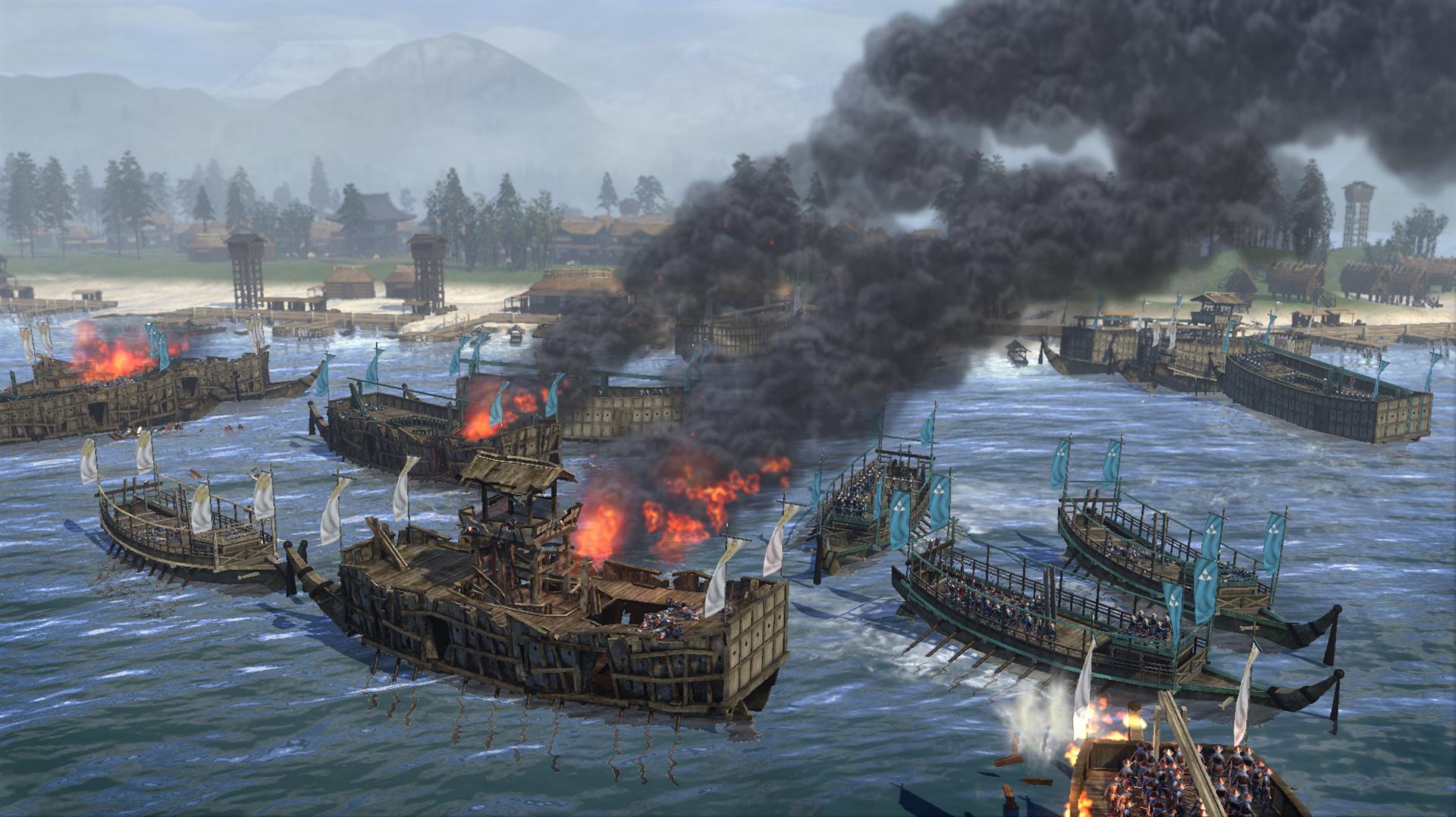 1920x1078 -- At sea, the Japanese supply ships take to operating in huge convoys along the west coast, protected by overwhelming numbers of warships. Though they sustain some losses from Admiral Yi’s attacks, it becomes clear that the Admiral only attacks when presented with smaller targets. 32 Japanese ships are sunk by month’s end, and 6 panoks with 1 geobok. The Flight of Kim Chung-Seon -- South of Seoul, in Suwon, Kim Chung-Seon realizes his position is untenable. The Japanese armies surrounding him are too numerous to be held off on his own. His worries are confirmed when the three forces begin marching to take Suwon. -- With Nagamasa laid out in his bed, 6000 of his division march under Kuroda Toshinori along the Han river, before turning west. Kobayakawa Takakage’s men march north, and Terumoto’s division marches south. General Kim does not have long to escape. -- Neither Takakage’s or Kuroda’s men run into the army, but when they arrive at Suwon they see a few scared defenders on the wall. There, they learn from Terumoto that he has fought several cavalry patrols emanating from the city, so he is fairly sure the army remains within. -- When Toshinori demands the surrender of the city, he is perplexed at the actions of the defenders. Some seem to want to give up, others want to fight, but there is no real leadership. Eventually the city refuses to give up, but the Japanese realize something is wrong. -- Toshinori and the other daimyou decide to look around. Toshinori’s scouts report that an army passed along the west coast northwards. The men look at each other - Kim is headed for Incheon. -- Toshinori’s force double-times their march away from Suwon, while the Mori lord oversees the taking of Suwon. The city falls easily, the walls manned mostly by old men and the infirm, and Terumoto realizes they’ve been had. -- Injury is added to insult in Suwon. A large contingent of the men in Takakage’s army fall sick after only a short time in the city, joining many civilians who have died already as well. A cursory investigation finds that much of the food and water in the city has been poisoned, most likely by Kim’s army. -- Kim reaches Incheon after a blistering march, hurrying as fast as he can to escape his predicament. His desperate plan to seize the Japanese ships at anchor, however, proves to be a failure. The garrison at Incheon gave enough warning to the ships that they sailed to Gunsan to escape. 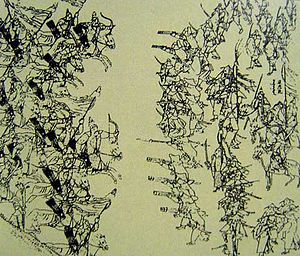 -- News that Toshinori’s force has engaged his rearguard sends the army into a frenzy. The arrival of squadrons of Admiral Yi’s ships to try and ferry who they can carry causes the troops to surge towards the beach, each man trying to be the one to get onto the boats. -- At the hind end of the army, Toshinori’s men face cornered men, with all the strength desperation grants. The army, pressed between the Japanese and the ocean, does what it can, but men spill from heights into the water to drown, or are trampled underfoot by their comrades. Terror fills the air. -- More and more ships arrive, but clearly there is not enough room for every Joseon soldier, even filling the ships beyond capacity. A heroic effort by the ship captains gets the men they can up the coast between Yonan and Kaesong. -- As the hours pass, the Japanese press harder, but outnumbered as they are they cannot deliver the shattering blow to destroy the entire force at once. -- In the middle of the mob, the General tries to get to a ship, but is unable to force past the crush of men. He can only watch as the Japanese get closer to his position foot by foot. -- As the sun sets, the balance of forces has shifted, and the Japanese outnumber those poor souls who remain on the beach. A last charge by the Kurodan forces breaks what will remains in the Joseon troops, who flee as best they can, or are cut down. -- At the end of the day, Incheon’s waters are stained red with blood, and the sharks feast on drowned and mangled corpses. It is Toshinori himself who discovers the real prize: General Kim Chung-Seon, still living, albeit with a broken leg, partially obscured by two bodies.  General Kim Chung-Seon has been captured! General Kim Chung-Seon has been captured! -- Kim’s army has been mangled badly, but survives. The 8,263 men take to Kaesong to receive orders from the Marshal. To Pyongyang -- The combined Korean army in Kaesong now numbers 23,859. The army begins its retreat from Kaesong, with Kim Myeong-Won ordering the city garrisons along the way to send reinforcements. The army swells as it nears Pyongyang, but it has left the cities of Hwanghae province less-defended. -- The flight of the army causes more ordinary citizens to rise up in arms, determined to strike against the Japanese if the army won’t.  -- The arrival at Pyongyang is bittersweet. Though the generals know this is necessary, but it is hard to leave so many undefended. Kim Myeong-Won is the one to buckle the morale though, explaining that had they all died at Kaesong, they would have no chance at retaking their country. At least this way there’s still some hope. Harsh words, but true. -- Terumoto’s force, now free of Suwon, marches north to find Kaesong denuded almost entirely of fighting men. It is an easy thing for his soldiers to scale the walls and take the strongpoints of the city, the third-most important in the entire country. The lack of fierce fighting means the defences only need minimal repairs as well. The Battle for Hungnam -- In the North, Prince Gwanghae decides that the Japanese incursion into his province has overstayed its welcome, and feels it is necessary to teach the dogs a lesson. He takes a large portion of his army and marches South. -- The invaders have not been lazy, though. Repairing what they could of the defences, they have done the best they can to make Hungnam a deathtrap. But the ships they need to escape have yet to arrive, and they are outnumbered almost 10:1 by the Joseon army. -- On the approach to the city, cannonballs arc through the air and strike pre-arranged areas of land, tearing at the attacking Joseon army. The Joseon troops respond with Hwacha, but the defenders have enough defenses over their heads to render the artillery less than amazing. -- As the Koreans march faster to escape the cannonades, many begin falling into spike-filled pits dug into the soil. The traps claim many lives before the attackers begin using long poles to test the ground before them. But it slows them down while bullets from the walls of Hungnam buzz and fly between and through the ranks. -- To try and stave off the attackers a bit longer, the main gates are thrown open. The greater number of civilians who had lived inside the city are forced out the gate in a huge mob, and they race away from the city as quickly as they can, eager to escape the fighting. The crush bogs down the army even further, until the Prince gives the order to charge past the civilians. With screams, many fling themselves away from the cavalry, but a good number are still trampled. 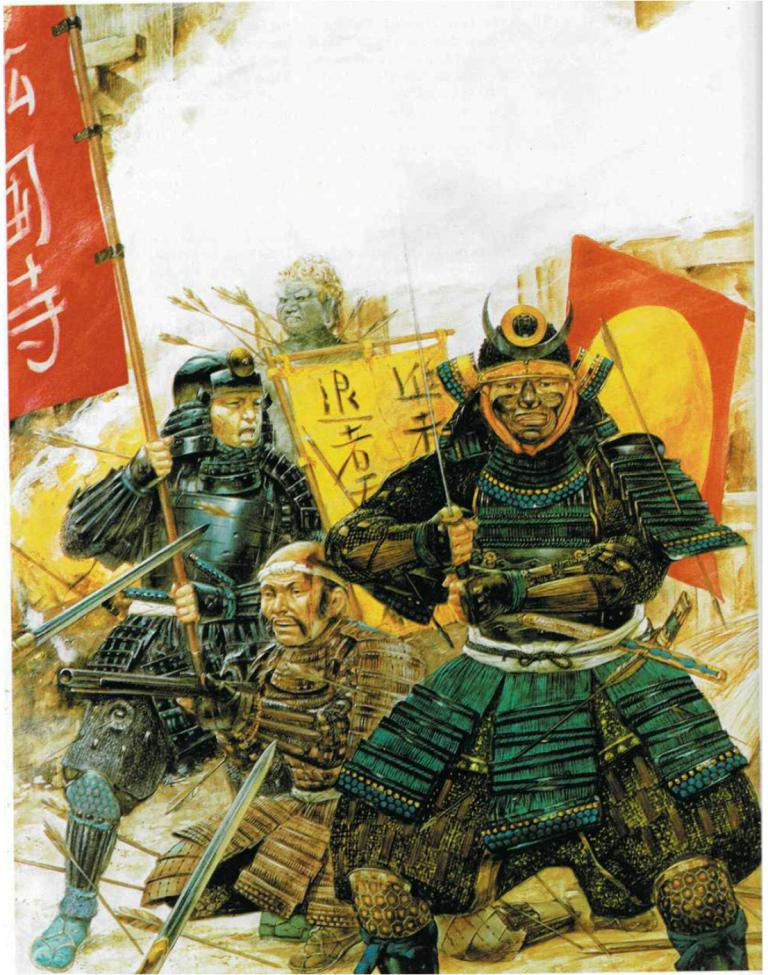 -- Finally, the Koreans have reached the walls. The sheer numbers they have outweigh the training and equipment the Japanese have, and slowly the Japanese are killed one by one, and forced from the walls. -- The ships have still not arrived. There is little hope for the defending Japanese. -- The fighting spreads through the city, but the final trap has yet to be sprung. Only when the main gate is thrown open again, this time to let in the Prince’s elite, is the fire set off. Strategically placed barrels of gunpowder and oil explode across the town, setting off a huge fire that rapidly spreads by the swift winds. -- The last of the Japanese defenders are cornered at the docks, where they had hoped to make their escape. But it is not to be. The last of the Shimazu detachment is cut down in the shadow of a raging inferno, mirroring the Prince’s anger. -- The few survivors are dragged out before the whole army, and publicly executed, their bodies divided into parts, and scattered as food for ravens and wolves. The Prince is victor, at a heavy cost. He has wiped out the Japanese force, but has many wounded and dead, over 2600 of them. What little is left of Hungnam has been retaken. The Daimyou’s Offer -- In Samcheok, Shimazu Yoshihiro sets off with his army to conquer more of Gangwon. After a few days, he nears the Righteous Army. -- He gives them an ultimatum: surrender, or be wiped out to a man. The army in front of Yoshihiro remembers the slaughter brought against them at Samcheok, and so, scared and desolate, the army melts back into the province from which it came. While it may not work for every force, the Shimazu daimyou’s offer succeeded here. -- Pleased with his efforts, Yoshihiro turns to Gangneung, where he reiterates his offer of surrender. Distraught at their isolation, the magistrate makes to surrender, before the garrison officer kills the man himself. The soldiers would rather die than give themselves up to the bastards. -- The Shimazu division obliges the men. Gangneung is a hard fight, and Yoshihiro decides to spend his time reducing this city rather than try to storm it and take Sokcho quickly. It certainly reduces the number of casualties his men take. -- The assault at Gangneung begins after a solid week of cannon bombardment beforehand. The shattered walls prove little resistance, but the men inside are still eager to fight as hard as they can. It is a slog, and at the end of the day, Gangneung is taken, with over 1,200 dead defenders, and 990 dead and wounded Japanese. -- The efforts of those men left behind by Kim Chung-seon continue to rile up the people. Yoshihiro suffers many small attacks on his foragers and supply train, and it is difficult to pin the raiders down for battle. It is something he will have to deal with soon if he wants to maintain control of the area. Up the River 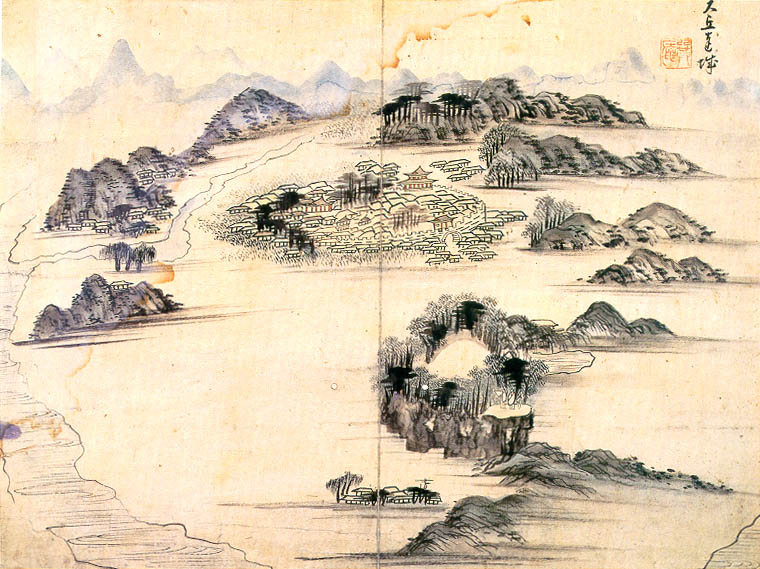 -- Leaving Fukushima’s division to head north, Dom Agostinho takes a somewhat more leisurely march back east to the Nakdong River. He begins to march up the river, taking a small naval detachment upstream with him. -- Letting his troops recuperate from the lightning campaign the month before, his pace is very slow. It is only near the end of the month that he has reduced the smaller towns and fortresses all the way to Daegu. -- At Daegu, though, the Marshal’s men decide to show their commander they’ve recovered. With renewed vigor they throw their force against the walls of the city, and after a brief but bloody struggle the Japanese banners wave over the city. Part of the Great Yeongnam Road, connecting the province to Seoul, is open to the Japanese! The Fall of Gyeongju -- At Gyeongju, the two armies sit and watch each other. -- A single secret message from Kim Si-Mim reaches Jeong Bal, and the general ponders his colleague’s warning. As he looks out the window from the fortress, he can see the Japanese have completely surrounded the city. It seems there can be no escape. -- Katou Kiyomasa’s army has arraigned itself to the four cardinal directions around the city. There will be no safe spot for the army inside, no escape. Katou’s speech to his troops makes clear: the battle will be swift and honorable. -- The brigades, with a precision well-noted by the Spanish observers, begin their attack on the city at sunrise on June 23rd. With the defenders unable to concentrate on one attack, it is not long before the Eastern walls fall to the attackers. -- The fighting is hard, but just past midday a horn is blown. Jeong Bal appears, under the flag of truce, and surrenders himself to Kiyomasa, and begs his men be set free, if disarmed. -- Katou cannot guarantee the freedom of the men, but he guarantees their lives. 3400 Korean soldiers surrender their arms and are escorted to Busan, to be dealt with at the Marshal’s discretion. Jeong Bal is taken as an honored captive by Katou Kiyomasa himself. Massacres in the South -- Kim Si-Mim sends men throughout the province, and encourages men to take up arms. His words fall on ready ears, as men gird themselves to take the fight to the invader. -- Kim’s scouts keep a close watch on Konishi, but when Fukushima’s division begins heading north, they relate that information to any Joseon army nearby. -- Fukushima himself is ready to swat Kim Si-Mim, that annoying horsefly, from his face, and crush the man and his army utterly. It is time to end this charade that the Koreans are actually capable of fighting this war. -- To this end he races as quickly as possible North. This stretches his army, as those burdened with the greatest plunder and gold fall behind the daimyou. It shall be their downfall. -- Over 4000 Japanese soldiers, left behind by the rest of the army, make their camp south of Namwon. Many laugh off the pace their daimyou is making, thinking it’s unnecessary. The camp, with its many captive women and barrels of liquor, grows boisterous and unconcerned. A fatal position. -- The first indication they have that something is wrong is the burst of rockets exploding inside the camp. The second is the warcry of 8000 Koreans rushing the camp, weapons drawn. -- Unprepared and ambushed, the Japanese are unable to turn the tide, and the vicious revenge of the Koreans is enacted against them. -- The Japanese are massacred, their bodies torn apart and trampled into the bloody dust in rage and revenge. Many of the women they had captured do not receive a happy fate, as some of the patisans declare groups of them traitors for having slept with the enemy. -- When Fukushima hears of the ambush two days later, his only response is a tight clenching of his fist. He will have his vengeance on the peasants, but his first duty must be to smash Kim Si-Mim. -- Arriving at the walls of Jeonju for a second time, his army arriving in drips and drabs, Fukushima immediately begins to attack the city with cannon and shot, intent on wiping out Kim completely. Kim himself helps guard the walls, directing his archers to shoot the most prominent of the Japanese samurai, with their elaborate helmets and tall sashimono banners. -- It is not enough to stop Masanori, though. His assault on the walls is fueled by monstrous hate, and is met with the same fierceness. In this corner of Korea, this is no longer a war between kings, but a struggle of races between victory and utter annihilation. -- Thousands of men die below and on the walls of Jeonju. Hundreds more die as the fight moves deeper into the city, the attackers belted by roof tiles and paving stones thrown by women and children. But it looks to be too little, and that Kim’s men will be destroyed in this city. -- They are saved by the arrival at Fukushima’s rear of the gathered Righteous Armies, who throw themselves against the Daimyou’s rear. But these men are prepared for battle, and unleash volley after volley of devastating fire into the Korean ranks before joining in melee with them. -- This is the opening Kim needs. Gathering his remaining soldiers and who survived of the garrison, along with any volunteers, they retreat out of the city away from Fukushima’s army, followed by a long train of civilians. No one wants to stay in the city to receive the demon’s wrath. -- The partisans have zeal, but they cannot defeat Fukushima here. As much as they fight to save Jeonju, the Japanese fight so they might have it for their own. It is cruel and merciless fighting, with no quarter asked nor given, but eventually the partisans retreat, long after the sun has set on the bloody ground. -- The dead are numerous. Fukushima has lost 3,458 men in the assault, but has savaged both Kim’s army and the partisans, though word of their victorious ambush has led many more men to join them. -- Fukushima’s revenge on Jeonju is swift. The massacre of those few still inside Jeonju will resound throughout the country as a symbol of viciousness. -- It is clear now, that if Dom Agostinho’s efforts to limit the horrors of war are to succeed, something must be done about the Fukushima daimyou’s actions. -- At the end of the month, the 6th Division under Tobayakawa Takakage is asked by the Marshal to take control of the security of the conquered areas: to organize sword hunts, protect supply convoys, enforce the edicts of the Marshal. The daimyou agrees to the assignment, and his men disperse throughout conquered Korea. -- At the end of the month, reinforcements begin to trickle into the various divisions from Tsushima. It is not a major flood of bodies, but the new blood helps reinvigorate the 3-month veterans. Disposition of Forces, July 1 1592 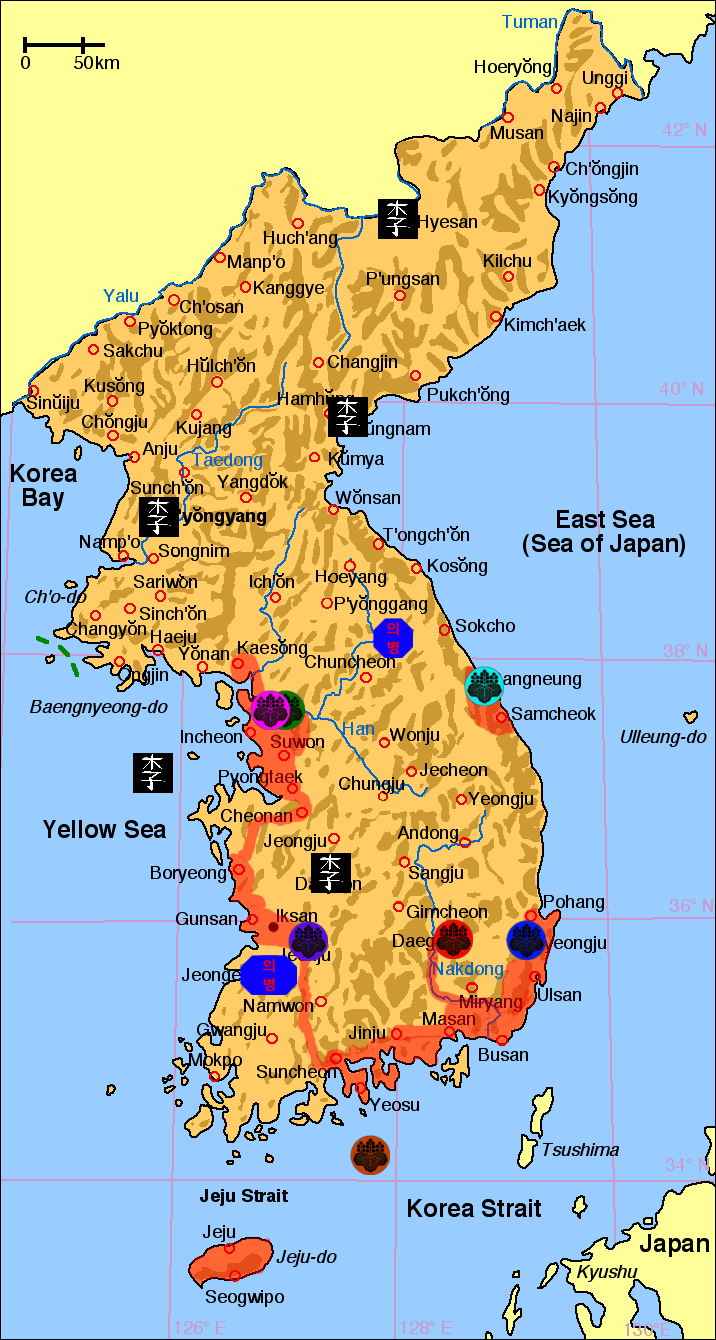 Weather Warning: July is the typhoon season in Korea! Prepare for stormy weather! Japan  872x1200 Konishi Yukinaga (Dom Agostinho) - 1st Division, Marshal of the Army, 14,973 troops, Red, Daegu. Taken - OscarDiggs/oscardiggssa@hotmail.co.uk  Katou Kiyomasa - 2nd Division, 20,318 troops, Blue, Gyeongju. Taken - Tatankatonk/tatankatonk22@gmail.com  670x658 Kuroda Nagamasa (Dom Damiao) - 3rd Division, 8,012 troops, Green, Seoul. Taken - Frionnel/phffernandes@gmail.com  Shimazu Yoshihiro - 4th Division, 11,315 troops, Light Blue, Gangneung. Taken - Gantolandon/gantolandonsa@gmail.com  517x658 Fukushima Masanori - 5th Division, 15,521 troops, Purple, Jeonju. Taken - A RICH WHITE MAN/moodinconsistency at google mail  Mori Terumoto - 7th Division, 18,956 troops, Pink, Seoul. Taken - Takanago/ktakanago@gmail.com  759x1368 Kuki Yoshitaka - Admiral of the Navies, 433 warships (with more in reserve), Umber. Taken - Proposition Joe/PropositionJoe.SA@gmail.com Joseon  Sin Rip - General of Hwanghae, 5,000 troops, Pyongyang  Jeong Bal- General of Gyeonsang,  CAPTURED! CAPTURED!  1090x1602 Kim Si-Mim - General of Jeolla, 4,276 troops, Daejeon. Taken - MadRhetoric/non_Ay_mous (at) yahoo (dot) com  Kim Myeong-Won - General of Pyongang, 9,000 troops, Pyongyang. Taken - Rogue0071/rogue0071sa@gmail.com  Prince Gwanghae - General of Hamgyong, 18,545 troops , Hyesan. Taken - Enjoy/sw_faulty@hotmail.com  Kim Chung-seon - General of Gangwon,  CAPTURED! CAPTURED! . Taken - Slaan/wlyle at indiana dot edu . Taken - Slaan/wlyle at indiana dot edu Yi Il - Marshal of Gyeonggi, 13,000 troops (+4000 Jurchen mercenaries for 5 months), Pyongyang. Taken - Ramba Ral/borisstukov at aim .com  649x1063 Yi Soo Sin - Admiral of the Navies, 121 panokseon ships, 18 geobukseon (turtle ships), Yeosu. Taken - Gorgo Primus/messedupjoe @ hotmail Ming China  Li Rusong - Exceptional commander, currently en-route to deal with the Mongol rebellion. 2,000 personal troops, 27,000 garrison soldiers attached to deal with Mongols. Taken - Fall Sick and Die/ccferrara@gmail.com  Li Yingshi - Current commander of Dalian, a large port on the Liaodong peninsula, very close to the border of the Yalu River. 1000 troops.  Admiral Chen Lin - Defender of the Ming coast. Weihai, 67 ships. Taken - Maximo Roboto/maximo DOT roboto at gmail you know the rest Southern Barbarians  Gómez Pérez Dasmariñas - 1200 troops, Manila. Taken - Sniper4625/Sniper4625@gmail.com  Dirck Gerritszoon Pomp - Unknown strength, en route to the Far East... Taken - a bad enough dude/ehoovestol@gmail.com
|
|
|
|
 Alessandro Valignano quote:
edit: This did not happen, disregard!
|
|
|
|
Alright, this last deadline was pretty porous, and pretty much entirely because of me. I want to rectify that and get back to quick turns.  Turn 4 - July 1592, is due 1/7 at 6 PM MST (GMT -7)! Turn 4 - July 1592, is due 1/7 at 6 PM MST (GMT -7)!
|
|
|
|
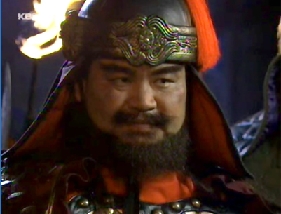 Admiral Chen Lin To the Honored Magistrates of the Court: Great Ming is beset on all sides by treachery. The Han peoples are besieged by cruel villains. The court has deemed the Taungoo a threat, and this servant of the Son of Heaven agrees. But we must also remind the court that the north has always been a source of dangers. The steppe nomads crouch beyond our borders by land, and the eastern barbarian dwarves attack our vassals by sea. Even as I write, savage wokou pirates lurk beyond our shores. Therefore, even as we pay obeisance to His Majesty the Emperor, we must remind the court that even if we are not to sail to war, the north still needs men, and weapons. In this time of danger, we urge the venerable Yuanzi and the audacious Sima Zhao to make peace between their factions. No matter what Huangdi decides, we must muster a defense capable of defeating the barbarians. Therefore, this servant of the Emperor suggests a compromise between the two positions: regardless if we should immediately intervene in the Korean peninsula, for now let us gather ships and men capable of fighting both the nomads and the invaders. We humbly implore the court to send provisions to both my northern protection fleet and Li Rusong's mighty armies. Please help us defend the north, the frontier that separates civilization from barbarity. Ten Thousand Years for the Emperor! 萬歲! 萬歲! 萬歲!
|
|
|
|
 Prince Gwanghae, General of Hamgyong To the province of Hamgyong: Die by the blades of barbarians or die under the hooves of our riders, a dead peasant is a dead peasant! Sun-bleached bones declare the accomplishment of the peasant's only worthy achievement: to die at the hands of his betters! The Confucian precept of the five relations does not apply to subjects of our beloved king who allow themselves to be herded about by Nihon barbarians and fail to inform his servants as to the barbarians' traps. All inhabitants of occupied towns that failed to spontaneously take up arms and die are hencefowards to be considered traitors who must be explicitly pardoned to be restored to good faith in my eyes. The town of Hungnam is on notice: any more acts of insolence such as you have shown will be met with annihilation!
|
|
|













